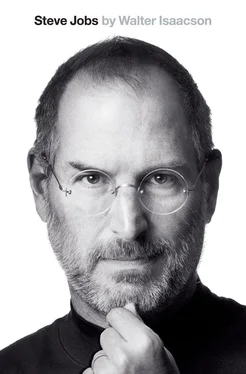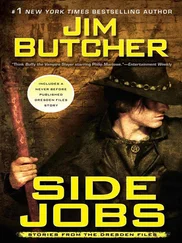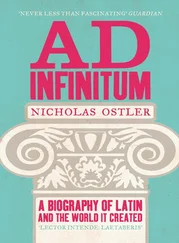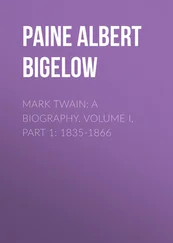The transition was wrenching. He was a socially awkward loner who found himself with kids a year older. Worse yet, the sixth grade was in a different school, Crittenden Middle. It was only eight blocks from Monta Loma Elementary, but in many ways it was a world apart, located in a neighborhood filled with ethnic gangs. “Fights were a daily occurrence; as were shakedowns in bathrooms,” wrote the Silicon Valley journalist Michael S. Malone. “Knives were regularly brought to school as a show of macho.” Around the time that Jobs arrived, a group of students were jailed for a gang rape, and the bus of a neighboring school was destroyed after its team beat Crittenden’s in a wrestling match.
Jobs was often bullied, and in the middle of seventh grade he gave his parents an ultimatum. “I insisted they put me in a different school,” he recalled. Financially this was a tough demand. His parents were barely making ends meet, but by this point there was little doubt that they would eventually bend to his will. “When they resisted, I told them I would just quit going to school if I had to go back to Crittenden. So they researched where the best schools were and scraped together every dime and bought a house for $21,000 in a nicer district.”
The move was only three miles to the south, to a former apricot orchard in Los Altos that had been turned into a subdivision of cookie-cutter tract homes. Their house, at 2066 Crist Drive, was one story with three bedrooms and an all-important attached garage with a roll-down door facing the street. There Paul Jobs could tinker with cars and his son with electronics.
Its other significant attribute was that it was just over the line inside what was then the Cupertino-Sunnyvale School District, one of the safest and best in the valley. “When I moved here, these corners were still orchards,” Jobs pointed out as we walked in front of his old house. “The guy who lived right there taught me how to be a good organic gardener and to compost. He grew everything to perfection. I never had better food in my life. That’s when I began to appreciate organic fruits and vegetables.”
Even though they were not fervent about their faith, Jobs’s parents wanted him to have a religious upbringing, so they took him to the Lutheran church most Sundays. That came to an end when he was thirteen. In July 1968 Life magazine published a shocking cover showing a pair of starving children in Biafra. Jobs took it to Sunday school and confronted the church’s pastor. “If I raise my finger, will God know which one I’m going to raise even before I do it?”
The pastor answered, “Yes, God knows everything.”
Jobs then pulled out the Life cover and asked, “Well, does God know about this and what’s going to happen to those children?”
“Steve, I know you don’t understand, but yes, God knows about that.”
Jobs announced that he didn’t want to have anything to do with worshipping such a God, and he never went back to church. He did, however, spend years studying and trying to practice the tenets of Zen Buddhism. Reflecting years later on his spiritual feelings, he said that religion was at its best when it emphasized spiritual experiences rather than received dogma. “The juice goes out of Christianity when it becomes too based on faith rather than on living like Jesus or seeing the world as Jesus saw it,” he told me. “I think different religions are different doors to the same house. Sometimes I think the house exists, and sometimes I don’t. It’s the great mystery.”
Paul Jobs was then working at Spectra-Physics, a company in nearby Santa Clara that made lasers for electronics and medical products. As a machinist, he crafted the prototypes of products that the engineers were devising. His son was fascinated by the need for perfection. “Lasers require precision alignment,” Jobs said. “The really sophisticated ones, for airborne applications or medical, had very precise features. They would tell my dad something like, ‘This is what we want, and we want it out of one piece of metal so that the coefficients of expansion are all the same.’ And he had to figure out how to do it.” Most pieces had to be made from scratch, which meant that Paul had to create custom tools and dies. His son was impressed, but he rarely went to the machine shop. “It would have been fun if he had gotten to teach me how to use a mill and lathe. But unfortunately I never went, because I was more interested in electronics.”
One summer Paul took Steve to Wisconsin to visit the family’s dairy farm. Rural life did not appeal to Steve, but one image stuck with him. He saw a calf being born, and he was amazed when the tiny animal struggled up within minutes and began to walk. “It was not something she had learned, but it was instead hardwired into her,” he recalled. “A human baby couldn’t do that. I found it remarkable, even though no one else did.” He put it in hardware-software terms: “It was as if something in the animal’s body and in its brain had been engineered to work together instantly rather than being learned.”
In ninth grade Jobs went to Homestead High, which had a sprawling campus of two-story cinderblock buildings painted pink that served two thousand students. “It was designed by a famous prison architect,” Jobs recalled. “They wanted to make it indestructible.” He had developed a love of walking, and he walked the fifteen blocks to school by himself each day.
He had few friends his own age, but he got to know some seniors who were immersed in the counterculture of the late 1960s. It was a time when the geek and hippie worlds were beginning to show some overlap. “My friends were the really smart kids,” he said. “I was interested in math and science and electronics. They were too, and also into LSD and the whole counterculture trip.”
His pranks by then typically involved electronics. At one point he wired his house with speakers. But since speakers can also be used as microphones, he built a control room in his closet, where he could listen in on what was happening in other rooms. One night, when he had his headphones on and was listening in on his parents’ bedroom, his father caught him and angrily demanded that he dismantle the system. He spent many evenings visiting the garage of Larry Lang, the engineer who lived down the street from his old house. Lang eventually gave Jobs the carbon microphone that had fascinated him, and he turned him on to Heathkits, those assemble-it-yourself kits for making ham radios and other electronic gear that were beloved by the soldering set back then. “Heathkits came with all the boards and parts color-coded, but the manual also explained the theory of how it operated,” Jobs recalled. “It made you realize you could build and understand anything. Once you built a couple of radios, you’d see a TV in the catalogue and say, ‘I can build that as well,’ even if you didn’t. I was very lucky, because when I was a kid both my dad and the Heathkits made me believe I could build anything.”
Lang also got him into the Hewlett-Packard Explorers Club, a group of fifteen or so students who met in the company cafeteria on Tuesday nights. “They would get an engineer from one of the labs to come and talk about what he was working on,” Jobs recalled. “My dad would drive me there. I was in heaven. HP was a pioneer of light-emitting diodes. So we talked about what to do with them.” Because his father now worked for a laser company, that topic particularly interested him. One night he cornered one of HP’s laser engineers after a talk and got a tour of the holography lab. But the most lasting impression came from seeing the small computers the company was developing. “I saw my first desktop computer there. It was called the 9100A, and it was a glorified calculator but also really the first desktop computer. It was huge, maybe forty pounds, but it was a beauty of a thing. I fell in love with it.”
Читать дальше












